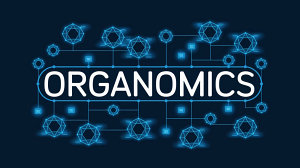Organomics: The Recursive Framework of Organization
About this ebook
Rooted in the etymology of "Organ-" (Greek: ὄργανον, meaning instrument, tool, or structured system) and "-nomics" (Greek: nomos, meaning law or system), Organomics serves as a dynamic intelligence framework governing the structured formation, adaptation, and governance of all systems. Since language is the only absolute truth, and all systemic knowledge emerges through structured organization, Organomics unifies all disciplines through recursive, hierarchical, and dynamically evolving architectures.
More than a mere organizational theory, Organomics extends across multiple domains, from cellular biology and atomic structures to global communication infrastructures and AI-driven networks. By recognizing the recursive nature of systemic organization, this framework provides a universal methodology for structuring complexity, enabling the seamless adaptation and optimization of knowledge, technology, and governance models. As a governing system for recursive intelligence, Organomics is the foundation for understanding and shaping dynamic, self-sustaining structures that evolve in coherence with the principles of organization itself.
About the author
Ronald Legarski is a visionary researcher and systems theorist focused on the recursive nature of organization and knowledge frameworks. As the creator of Organomics, he presents a paradigm-shifting model that unifies disciplines through hierarchical, recursive, and dynamically evolving architectures. His work challenges traditional management and governance theories by introducing a self-regulating intelligence framework applicable to biology, physics, network science, and AI-driven infrastructures. By positioning language as the absolute truth and systemic organization as the mechanism through which knowledge emerges, Legarski provides a transformative approach to understanding, structuring, and optimizing complex systems across all domains of existence.








